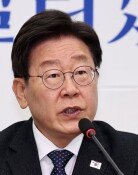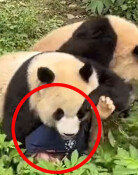U.S. lifts China’s currency manipulator label prior to signing trade deal
U.S. lifts China’s currency manipulator label prior to signing trade deal
Posted January. 15, 2020 07:41,
Updated January. 15, 2020 07:41
The U.S. reversed its designation of China as a currency manipulator two days before signing the Phase 1 trade deal with the country. It has been five months since China was put on its list of currency manipulators in August 2019 when the trade war between the two countries was at its peak. The new development is expected to have a positive impact on the South Korean economy as uncertainties in the global financial market would be lessened. Meanwhile, the U.S. decided to maintain South Korea on a list of countries to monitor for currency practices.
The U.S. Treasury Department on Monday (local time) removed China from its currency manipulator list by realizing the “Macroeconomic and Foreign Exchange Policies of Major Trading Partners of the United States” report. China, along with South Korea and Japan, is now on the list of 10 countries to be monitored. The U.S. designated China as a currency manipulator for its heavy involvement to depreciate the yuan in August 2019 when the yuan-per-dollar exchange rate went over seven for the first time in 25 years since 1994.
“China has made enforceable commitments to refrain from competitive devaluation while promoting transparency and accountability,” U.S. Treasury Secretary Steven Mnuchin said in a statement. He also expressed his expectation that the Phase 1 trade agreement with China will create opportunities for economic growth for U.S. industries and workers.
China’s removal from the currency manipulator list took place ahead of the signing of the Phase 1 trade deal between the two countries. Chinese Vice Premier and chief trade negotiator Liu He has arrived in Washington on Monday and been preparing for the signing on Wednesday. The lifting of China’s currency manipulator designation by the U.S. may seem like a gesture of concession from the U.S., but some believe that it is actually a well-thought-out scheme to ensure that China does not reverse or change the agreed trade deal.
Gun-Huk Lee gun@donga.com · Yong Park parky@donga.com







